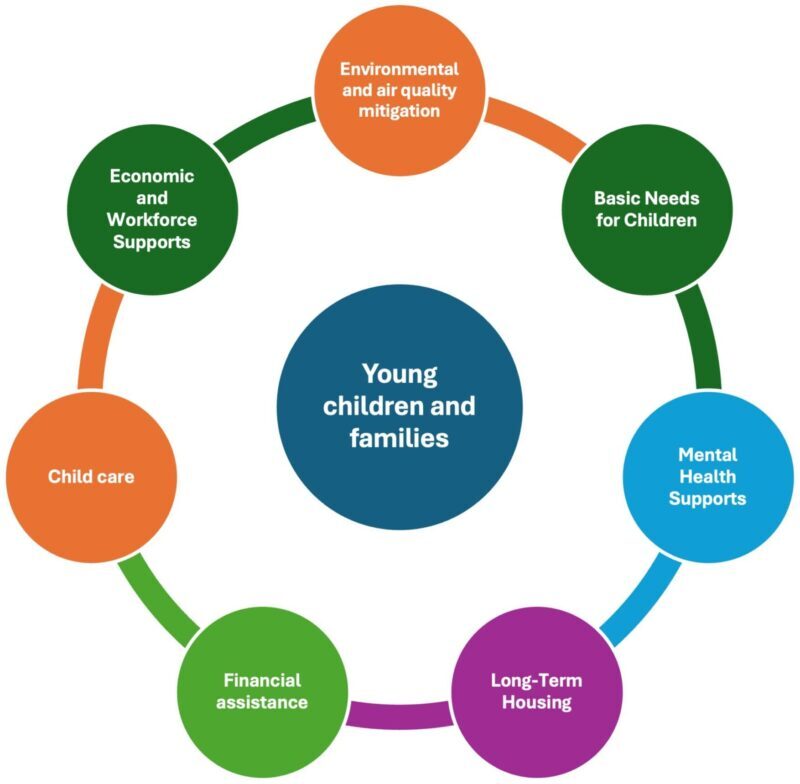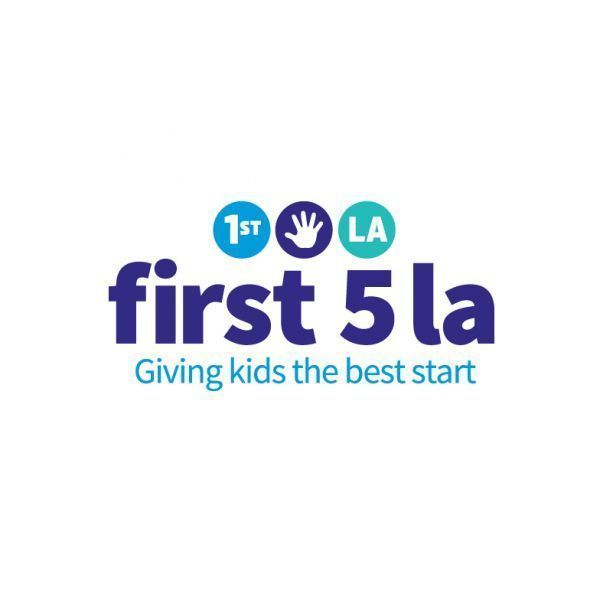March 30, 2021
Despite the warm and fuzzy feelings generated by the thought of a loving caregiver providing comfort and support to an adorable young child, the reality is that the devaluation of child care as worthy work is reflected just about everywhere: in the lack of paid family leave, in workplace policies that are not family-friendly, in the lack of publicly funded child care, and in the poverty wages paid to the early learning and care workforce, the vast majority of whom are women of color.
Few public investments are as much of a slam dunk as spending on early learning and care. Such an investment has broad appeal across the political spectrum. It’s hardly an example of government waste — numerous studies indicate that public investments in child care generate significant returns on investment. Few disagree on the importance of having a safe, nurturing environment to care for children while parents go to work — indeed, the vast majority of children have working parents. Many scholars, including Nobel Prize-winning economist Dr. James Heckman, have touted the importance of quality early learning as having long-term benefits — not just for children and society, but for the American economy. But instead of allocating public funding where it can be most impactful, policymakers consistently refuse to make an investment that would transform the lives of tens of millions of children, working parents, and early childhood educators both in the long- and short-term.
We have to ask: if the evidence is so clear that early learning and care is a sound economic investment, why do we not see that reflected in the policies that are implemented at the local, state and federal levels? If child care were largely the vocational purview of white men, do you think that the field would make poverty wages? The answer, tough as it may be to accept, is misogyny and systemic racism.
 March is Women’s History Month, and what better time to reflect upon the early learning and care workforce and the role it plays in the society in which we live? In Los Angeles County, women of color make up the majority of the child care workforce. The pandemic laid bare just who were essential workers in our economy. Indeed, it was not the bankers or the CEOs or the Hollywood producers — it was the grocery clerks, the hospital janitorial staff, and yes, the child care workers who allowed other essential workers to go to work themselves. Despite their essential role, the ECE workforce is exploited, undervalued and abused — forced to serve as a backbone of society and a revenue generator for the broader economy, all in exchange for a life of poverty. As so many parts of the economy shut down due to the pandemic, many child care providers — particularly home-based care providers — kept their doors open, putting themselves at risk and allowing essential workers to do the essential work while preparing children to succeed in school and life.
March is Women’s History Month, and what better time to reflect upon the early learning and care workforce and the role it plays in the society in which we live? In Los Angeles County, women of color make up the majority of the child care workforce. The pandemic laid bare just who were essential workers in our economy. Indeed, it was not the bankers or the CEOs or the Hollywood producers — it was the grocery clerks, the hospital janitorial staff, and yes, the child care workers who allowed other essential workers to go to work themselves. Despite their essential role, the ECE workforce is exploited, undervalued and abused — forced to serve as a backbone of society and a revenue generator for the broader economy, all in exchange for a life of poverty. As so many parts of the economy shut down due to the pandemic, many child care providers — particularly home-based care providers — kept their doors open, putting themselves at risk and allowing essential workers to do the essential work while preparing children to succeed in school and life.
“Women’s work” like child care has always been undervalued. In America, there is a long history of having non-white women do the hard work of raising children under exploitative economic conditions. First 5 LA has long focused on improving the quality of the early learning and care system. But the events of the last year have underscored that a crucial component of a quality system is a workforce that is invested in and valued, especially given the responsibility heaped upon them. Part of the work of creating a vibrant, quality early learning and care system that meets the needs of Los Angeles County’s youngest learners means ensuring that the work of caring for children is respected, adequately compensated and supported by public institutions. Unfortunately, the early care and education professionals have had to endure a lack of investment for decades. Their work is compensated in many cases with poverty wages –– even as professional expectations for the field continue to rise. Systemic inequities are baked into public funding opportunities that only serve to deepen the entrenched inequities within the system.
We cannot expect a quality system built on the backs of exploited workers who are given tremendous responsibility and subjected to ever-increasing expectations, without commensurate compensation. To that end, one critical component of First 5 LA’s systems change approach to achieving our strategic priority of strengthening public and community systems is to increase the reimbursement rate paid to providers in publicly funded early learning and care settings.

Improving provider rates requires a dramatic increase in investment in the state’s early learning and care system and a long-overdue examination of the ways in which our child- and family-serving systems and institutions may be aiding inequitable structures. It is imperative that early learning and care providers in state-sponsored systems have the skills to provide responsive, engaging, culturally competent care — but doing that requires centering them, their needs and voices, in designing the systems that support them. Equally important to this is ensuring they are given resources to take on these responsibilities, including but not limited to: raising their wages so that early learning and care professions remain a viable career path that can provide economic security; providing classroom resources and materials needed to support every child’s optimal development; and ensuring paid time off for professional development.
First 5 LA’s North Star — that all children in L.A. County enter kindergarten ready to succeed in school and life by 2028 — is lofty. It is also achievable. But achieving our North Star means looking critically at the systems — not just during Women’s History Month, but always — in which our work operates, acknowledging shortcomings, institutional racism and sexism reinforced by those systems, and then having the challenging conversations to implement the changes necessary for a more equitable, inclusive early learning and care system that provides early learning and care workforce with the respect and dignity it demands. Addressing the systemic barriers that perpetuate inequality will take time but ultimately provide the economic stability needed to support ECE providers in delivering quality early learning experiences for your youngest learners, and it will help ensure the viability of early learning and care as a career path — something that is paramount in ensuring there is a workforce that can support a world wherein all children are able to participate in quality early learning and care.










